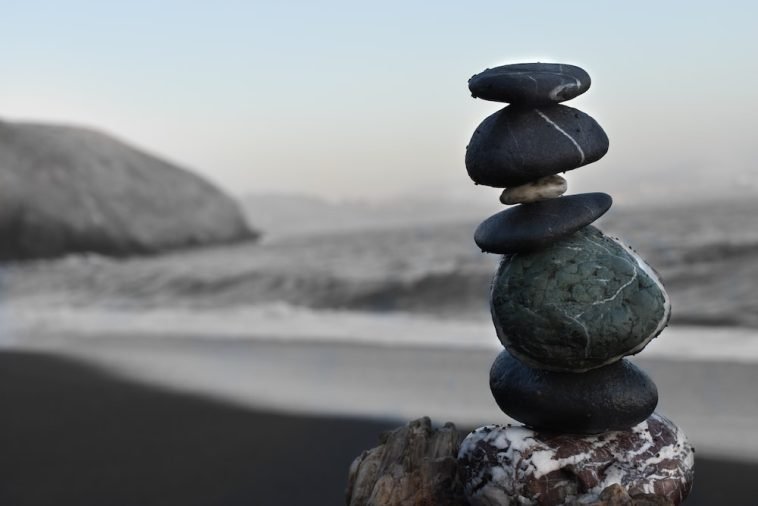Introduction.
Finding balance in life can feel like trying to juggle too many things at once. Between work, family, friends, and personal time, it’s easy to feel overwhelmed and burnt out.
You’re not alone in this. It seems like everyone is constantly chasing the perfect balance, but the truth is, there’s no one-size-fits-all solution. What works for me might not work for you, and that’s okay.
But that doesn’t mean I can’t try to make sense of it all, and hopefully, help you find some peace of mind in the process.
Life can get chaotic, and it’s easy to get lost in the noise. But with a little self-awareness and the right tools, it’s possible to find harmony and balance that fits your life, not anyone else’s idea of balance.
In this guide, I’m going to break things down, step by step, so you can create your own version of balance that feels right for you.
Plus, I’ll answer some frequently asked questions to make sure we’re on the same page.
What is Life Balance, Anyway?
Before diving into how to find balance, it’s important to understand what balance actually means. It doesn’t mean splitting your time equally between work, family, and friends. Life balance is more about aligning your activities with your values and priorities.
It’s about finding what feels right for you at this moment in your life, rather than trying to force yourself into a mold that others have created.
For some, balance might mean dedicating more time to personal growth or creative passions. For others, it’s about spending more time with loved ones. It’s about being okay with saying no to some things in order to say yes to others that truly matter.
It’s also about knowing when to slow down and when to push yourself. The key is listening to your body, your mind, and your heart.
How Do I Find Balance in My Life?
1. Prioritize What Matters Most.
The first step to finding balance is figuring out what’s really important to you. I know, it sounds simple, but it’s not always easy to do.
Life has a way of pulling us in a million directions, and it’s easy to get caught up in things that don’t align with what we value most.
Start by asking yourself, “What really matters to me right now?” Do you want to focus more on your career? Your relationships? Your health? Your hobbies?
Take a few minutes to jot down your top priorities. Once you know where your focus should be, it’s easier to make decisions that align with those values.
2. Set Boundaries and Learn to Say No.
This one’s tough, I know. Saying “no” can feel like you’re letting people down or missing out, but in reality, saying “no” can help you protect your time and energy.
The more you say “yes” to things that don’t serve you, the less time and energy you have for the things that matter most.
Think about it: If you’re constantly saying “yes” to every invitation, every request, or every extra task, you’re spreading yourself thin. It’s okay to set boundaries.
Whether it’s saying no to a work project that’s beyond your capacity or turning down social plans when you need rest, setting boundaries helps you create the space you need to focus on what’s truly important.
3. Embrace Flexibility
Life rarely goes as planned, and trying to force things into a rigid schedule can actually add more stress.
Finding balance doesn’t mean sticking to a strict routine where everything is perfectly timed and planned. It means being flexible and adapting to whatever life throws your way. Some days will be better than others, and that’s perfectly fine.
Give yourself permission to adjust your expectations when things don’t go according to plan. Maybe you miss a workout because work ran late, or you end up staying in for a night of self-care instead of going out. That’s okay. Flexibility helps you stay grounded when life doesn’t follow your script.
4. Take Care of Your Physical and Mental Health
Balance isn’t just about managing your time—it’s about taking care of yourself, too. Your body and mind are the foundation of everything you do, so it’s essential to prioritize your health. This means getting enough sleep, eating well, exercising, and managing stress.
Mental health is just as important. Taking time for self-care, practicing mindfulness, and even seeking professional help when needed are all important steps toward finding balance. When you feel good physically and mentally, you’re better equipped to handle life’s ups and downs.
5. Make Time for Yourself.
It’s easy to get caught up in everything around you, especially if you’re a parent, a caregiver, or a busy professional. But in order to find balance, you need to make time for you.
This might mean taking a few minutes each day to relax, read, or do something you enjoy. Maybe it’s carving out a couple of hours on the weekend for a hobby or taking a mental health day from work.
Taking time for yourself isn’t selfish—it’s necessary. When you’re able to recharge, you’ll have more energy and focus for the people and things that matter to you.
6. Build a Support System..
No one can do everything alone, and that’s where a solid support system comes in. Surround yourself with people who lift you up and understand your need for balance.
Whether it’s family, friends, or co-workers, having people to lean on can make a huge difference in how you manage stress and maintain your well-being.
Having someone to talk to can help you process your feelings, get advice, or just feel understood. Plus, sharing the load with others can make it easier to find time for yourself.
7. Practice Gratitude.
A simple yet powerful way to find balance is by practicing gratitude. Focusing on the positive aspects of your life can help shift your mindset and bring a sense of balance to your day-to-day experience.
It doesn’t have to be anything big—just taking a moment to appreciate the small things, like a good cup of coffee or a kind gesture from a friend, can make a big difference.
Gratitude helps you focus on what’s going well, rather than getting stuck in what’s not. This shift in perspective can make it easier to handle challenges and keep your life in balance.
8. Be Patient With Yourself
Finding balance is a journey, not a destination. It’s easy to get frustrated if things aren’t perfect, but be patient with yourself.
There will be times when you feel out of balance, and that’s completely normal. The important thing is to keep working toward it and not give up.
Every day is a new opportunity to try again, to adjust, and to find what works for you. Life is messy, and balance doesn’t always look the same from day to day. Give yourself grace as you navigate the ups and downs.
FAQs
Q: How do I know if I’m out of balance?
A: If you’re feeling constantly stressed, overwhelmed, or like you’re neglecting certain aspects of your life (like your health, relationships, or personal time), it might be a sign that you’re out of balance.
Q: What if my work-life balance isn’t great right now?
A: It’s common to struggle with work-life balance, especially if you’re in a demanding job or have a lot of responsibilities. Start small—set boundaries, prioritize your time, and make sure you’re taking care of yourself outside of work.
Q: Can balance change over time?
A: Absolutely! Life changes, and your definition of balance will change, too. What feels balanced now might not work in a year, and that’s okay. Stay flexible and be open to adjustments as life evolves.
Conclusion.
Finding balance in life isn’t a one-time thing—it’s an ongoing process. Life will always throw curveballs, but with the right mindset and strategies, it’s possible to stay grounded and centred.
The key is being in tune with your priorities, setting boundaries, taking care of your health, and allowing room for flexibility and growth.
So, what’s your next step toward finding balance? What’s one thing you can do today to take a step in the right direction?





GIPHY App Key not set. Please check settings